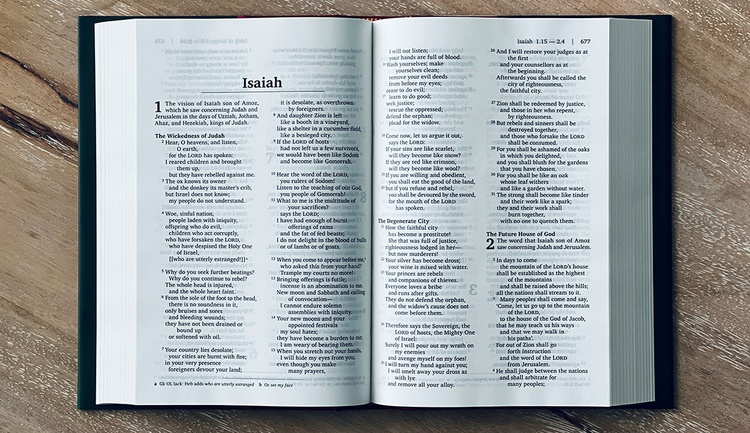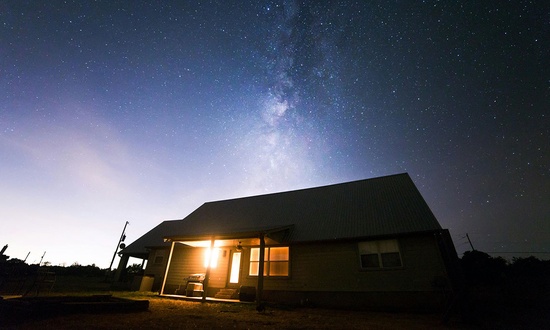Comment from a Reader:
I have been learning that most of the references in the Bible referring to the “Kingdom” refer to the Millennial Kingdom. Isaiah 65:20-25 describes the Millennial Kingdom under Jesus' reign. Because believers who survive through the Tribulation will enter the Millennial Kingdom in their earthly bodies, there will continue to be procreation. In vs. 20, it says, “For the youth will die at the age of one hundred and the one who does not reach the age of one hundred will be thought accursed.” Therefore...the descendants of the original Millennial Kingdom inhabitants will either be believers and live, or unbelievers who die by age 100.
I consider the four passages listed in Heaven under the section “A Vision of the New Earth” to be references about the Millennial Kingdom rather than the eternal earth. Randy quotes Isaiah 60 as a chapter that refers to the New Earth, but verse 5 says, “The wealth on the seas will be brought to you, to you the riches of the nations will come.” I would like to suggest that this is referring to the Millennial Kingdom, as Revelation 21:1 clearly says that in the New Heavens and New Earth there will be "no longer any sea." Therefore, there probably won't be any islands or ships in the New Earth, but there could still be while Jesus is reigning on earth in the Millennial Kingdom.
Randy says, “The hearts of the nations will be transformed in their attitudes toward God, his people and his city.” However, you also say, “Of the New Jerusalem, we're told that ‘nothing impure will ever enter it,’” referencing Revelation 21:27. In the Millennial Kingdom, there will still be unbelievers and therefore, nations could need to have their attitudes transformed; however, nothing impure will ever enter the Eternal Heaven...no attitude would have to be transformed as all who enter are believers.
Response from Stephanie Anderson, EPM staff:
On the subject of the Millennium, I would encourage you to keep reading Heaven, as Randy addresses this further in the book. (Chapter 14 talks more about the millennial rule.) There is certainly debate by theologians about what particular future era of Christ’s reign those verses apply to. But here is Randy’s summation in the book: “Christ’s millennial reign may prefigure the fulfillment of God’s promises about Jerusalem’s future. But we will see their ultimate fulfillment only in the New Jerusalem on the New Earth, when the Curse is gone, death is no more, and God’s people will live on the earth forever.”
It’s really good news that we will live with God and His people forever and ever on the New Earth!
Randy comments that the feedback you shared reflects a typical dispensational view that turns New Earth passages into millennial passages. For instance, you referenced Isaiah 65 and the Millennium, yet Isaiah 65 specifically says it’s talking about the New Earth.
Regarding Isaiah 60, at least two verses in that chapter are quoted in Revelation 21 and 22 specifically in relationship to the New Earth, not the Millennium. The Millennium ends in Revelation 20, but Revelation 21 and 22 are all about the New Earth. Randy writes, “Were they quoted in Revelation 20 in relationship to the Millennium, then we would need to see them as millennial. But they are not; they are quoted in Revelation 21 and 22 in relationship to the New Earth.”
You also mentioned the “no more seas” reference. Randy wanted me to share this article with you, excerpted from his book We Shall See God. He writes, “Spurgeon's interpretation and mine are that it doesn't mean no more oceans or no more large bodies of water, but no more of the sea as it was viewed in that culture, the place of shipwrecks, drowning, poisoning by salt water, etc. I allude to the Ezekiel passage that talks about the seas being made into fresh water with the curse lifted. Hence, ships could certainly still sail on the ocean as Isaiah 60 indicates, even though it will be very different from the old threatening seas under the Curse.”
Photo: Unsplash




